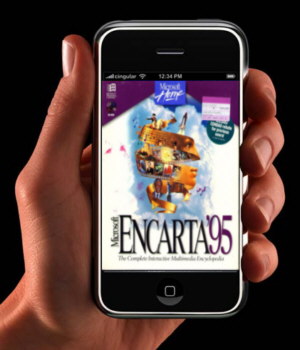Tapanes v. State, — So.3d —, 2010 WL 3488709 (Fla.App. 4 Dist. September 8, 2010) [Opinion (PDF)]
Defendant was accused of killing his new neighbor and was indicted for murder. The jury convicted him of the lesser charge of manslaughter.

One of the key concepts in the case, and mentioned specifically in the jury instructions, was whether the defenant acted with “prudence” in his dealings with the victim.
During a break from deliberations, the jury foreperson used his iPhone to access Encarta and look up the word “prudence”. Adding to this misdeed, the foreperson shared this information with the other jurors.
Based on this misconduct, defendant filed a motion seeking a new trial, and the trial court denied that motion. So defendant sought review with the Court of Appeal of Florida. On appeal, the court reversed, holding that the defendant was entitled to a new trial.
The appellate court observed that the concept of “prudence” was one that could have been key to the jury’s deliberations. Using the smartphone in this way was analogous to using a dictionary, and that conduct has generally been prohibited in juror deliberations. The appellate court found that at the very least, it could “not say that there [was] no reasonable possibility that the . . . misconduct . . . did not affect the verdict in this case.”
Ed. note: If the jury foreperson was savvy enough to use an iPhone, why on earth was he consulting Encarta? Hello, 1995 called – it wants its web pages back.
